#neuromancer
Text
901 notes
·
View notes
Text
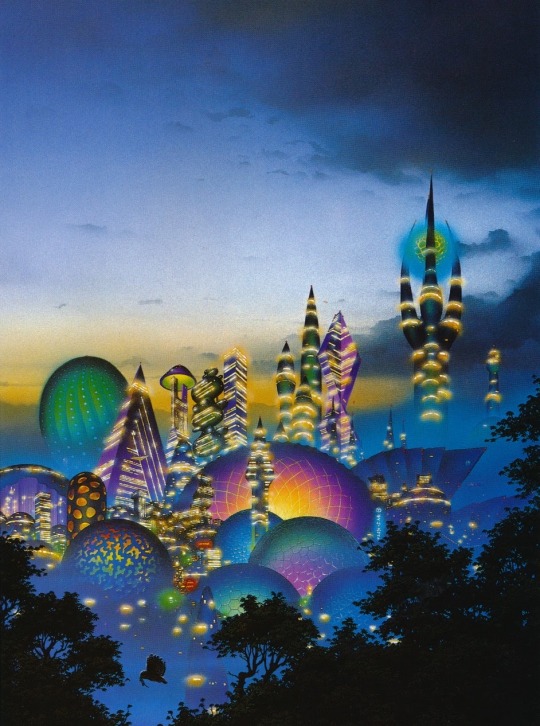
Tim White ‘Neuromancer’ (William Gibson, Panther, 1986)
3K notes
·
View notes
Text

Neuromancer
#pixelart#8bitstyle#retrowave#8bit#pixel#retro#artwork#digitalart#illustration#8bitart#cyberpunk#neuromancer#scifi#science fiction#scifiart#pixelart animation#pixel aesthetic#pixel animation#pixelart ドット絵
3K notes
·
View notes
Text
Honestly, the thing about the stolen RAM chips might be one of my favourite little details in Neuromancer, because it's both the most obviously ridiculous detail to modern audiences, and practically the only thing about computers the text actually gets right. Prior to the price crash of 1996, RAM genuinely was the most expensive component of a desktop computer – like, by an order of magnitude. There really was a thriving black market in stolen RAM chips. This was literally the one thing William Gibson actually knew about computers, and now it's one of the silliest lines in the whole book.
2K notes
·
View notes
Text
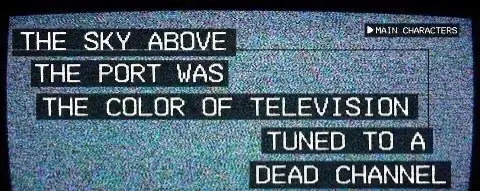
#cyberpunk#cyberpunk aesthetic#quoteoftheday#cybercore#internet culture#neon daydreams#book quotes#neuromancer#william gibson
293 notes
·
View notes
Photo
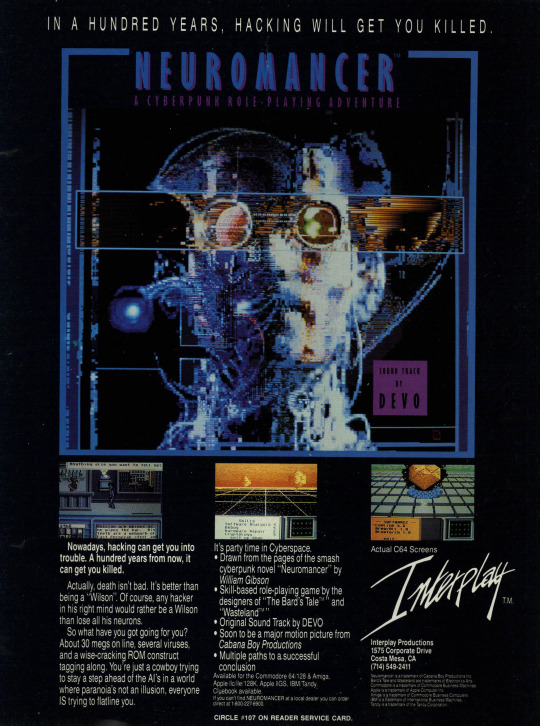
Hacking will get you killed
'Neuromancer'
Commdore 64
439 notes
·
View notes
Text



“Many say the moon is closer to the dead.”
This is COLOR OF A MIRROR, my debut novel with an original, dark ambient soundtrack by composer Josh McCausland to go along with it.
Written, designed, and published by me, it’s the culmination of years of work, and it’s exactly the story I wanted to tell. It’s not loud or bombastic, but rather a cerebral, slow-burn cyberpunk narrative lingering on themes of fame, paranoia, religion, and technology. If you’re a fan of the brooding futures of William Gibson, Blade Runner, or anything with a mood like the movie Drive, I think you’ll find something to love here.
Available exclusively on my website, it comes in limited edition deluxe-hardcover, softcover, and e-book. (And if you’re a vinyl lover, the soundtrack is pressed in 180g Moondust White; also available on my site.)
Welcome to the Dive. Hope to see you around.
-Dan
•
colorofamirror.net
(Book photos by Josh McCausland.)
#debut author#cyberpunk#cyberpunknovel#cerebral#slowburn#futuristic#dark science fiction#brutalism#minimalism#graphic design#typography#abstract art#independent publishing#dark ambient music#soundtrack#original score#tech noir#bladerunner#neuromancer#darkfuturism
314 notes
·
View notes
Text
The History of Cyberpunk
Or why every other SciFi Genre is called [something]punk
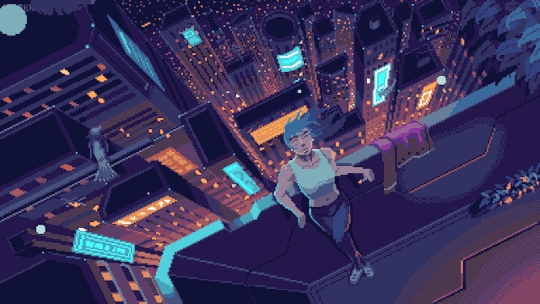
You know what? Let's do this. Because I have seen the discussion on whether or not Solarpunk is "punk" over the last few days and... people really gotta learn their history.
The first time a genre took the "punk" name was Cyberpunk. And for context we gotta talk a bit about the history of the Cyberpunk genre.
While some books that we in hindsight call "Cyberpunk" were released as early as the 1960s, the start of Cyberpunk as a genre got its start in the late 70s and early 80s.
The term was invented by Bruce Bethke, who published a short story in 1983 with the name "Cyberpunk". His idea was to juxtapose the term "punk" for both the mentality and the punk protagonists in his short story with the term cyber, short for the cybernetics they were wearing. And while the cybernetics have become a main stay in the genre, the punk attitudes are not always carried through...
Well, the title Bethke invented stuck, though. When 1984 Neuromancer was published, one of the most influencial works in the early days of the genre, he called it "a Cyberpunk novel" in the marketing. And from there... Well, the genre was suddenly named like that.
The 80s were definitely the decade that had the most influence on the genre, given that a lot of the big novels and graphic novels of the genre were released here.
A big influence was, no doubt, that 1982 the Blade Runner movie had released and had inspired quite a few writers and artists. (And yes, this makes Blade Runner a movie that released not only before the term Cyberpunk was coined, but also before the genre had a chance to define itself.)
Given that the genre was defined in the 80s, there are a lot of 80s anxiety kept within it about the rise of the Japanese economy, that are these days rarely questioned within the western Cyberpunk movement.
When the genre was coined and developed, Japan was the fastest growing economy in the world, being so influencial that they got to buy out several things in America. Something that kinda jerked white people in the US a lot. This is, why Cyberpunk originally depicted not only a capitalist hellscape - but specifically a capitalist hellscape were everything was bought out by Japanese companies, with many of those early antagonists being Japanese companies. And yeah... there was a lot of both anti-japanese racism, but also cultural appropriation of Japanese things in early Cyberpunk, at time surviving to this day. (But that is a story for another day.)
The general sense that Western Cyberpunk had, was always the idea of: We have a capitalist hellscape where the world is slowly dying and people are exploited with no end, while we have those kinda punky protagonists, who stand outside of the society and try to work against it. This being where the punk comes from.
Now, I could talk for length about how a lot of that punky attitude has been lost in more modern Cyberpunk media, but that, too, is a story for another day.
So, let me just talk about what happened then.
The term Cyberpunk really is darn catchy, right? So just when that name took hold, writer K.W. Jeter retroactively called his 1979 novel Morlock Night "steampunk". And guess what: This stuck, too. Though while the 80s Cyberpunk still stuck to the punk attitude, a lot of Steampunk did not. While for certain there is quite a bit of Steampunk that has kinda punky characters go against the quasi Victorian society of steampunk books (something most common in the air pirate novels I have read), a lot of other stories are more focused on a general sense of adventure.
But never the less... The genre names stuck and gave a nice baseline for naming other genre. We got Dieselpunk, Atompunk, Nanopunk, Arcanepunk, Dustpunk, Silkpunk and of course also Solarpunk and Lunarpunk.
And for the most part... The "punk" names mostly communicate: "It is SciFi with this kinda aesthetic/twist going on". Which is just how it turned out.
Funnily enough Solarpunk is for once a genre that brings back the punk, as it tends to include a lot of the ideals aspired to by the Punk counter culture of the 1970s: Anarchism, anti-capitalism, anti-consumerism, anti-classism, anti-racism, anti-colonialism and so on. Though other than with Cyberpunk and the real world punk movement, Solarpunk for the most part imagines a place, where those things are culture instead of counter culture.
I personally find it kinda sad, how for the most part Cyberpunk kinda lost a lot of the counter-cultural, revolutionary mindset. And how fucking defeatist the genre often is.
But again, it is a story for another day. Just as the story of Japanese Cyberpunk is.
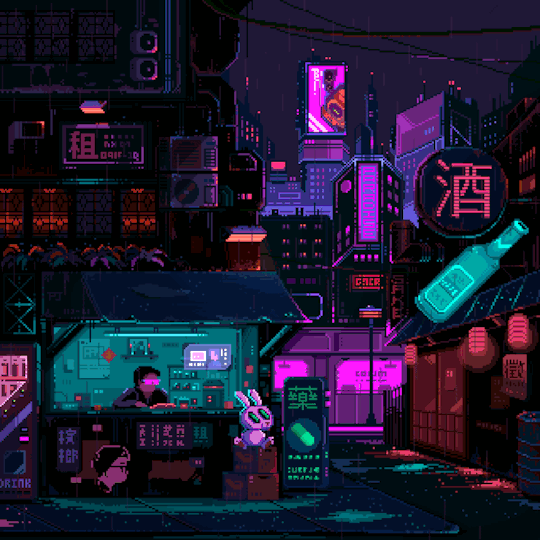
#cyberpunk#solarpunk#steampunk#cyberpunk history#western cyberpunk#science fiction#scifi#william gibson#neuromancer#genre history#punk
427 notes
·
View notes
Text

Entrance to Black Lotus night club; upstairs to live performers and psycho-enhancers, ground floor and basement to cyber-brothel. Cyber City 2133.
#cyberpunk#cyberspace#cybergoth#future#neuromancer#scifi#fantasy#bladerunner#android#robot#punk#digital#japan#cyberpunk2077#cybercity#cybercity2133#anime#manga#outrun#vaporwave#synth#synthwave#tron#ghostintheshell#akira#alteredcarbon#judgedredd#matrix#technoir#darksherephotography
342 notes
·
View notes
Text
Neuromancer (C64/DOS, Interplay, 1988/1989)
You can play it in your browser here. Controls for the DOS version include the mouse; keyboard controls can be found in the reviews below the game. C64 controls include numpad 84620 for joystick.


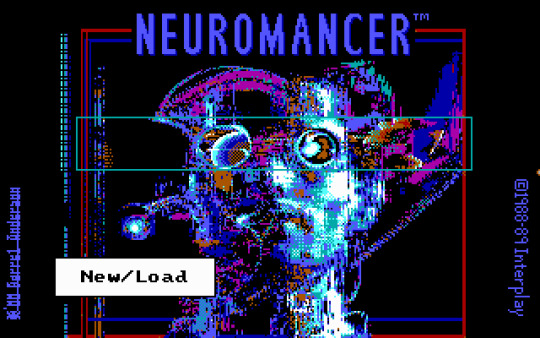

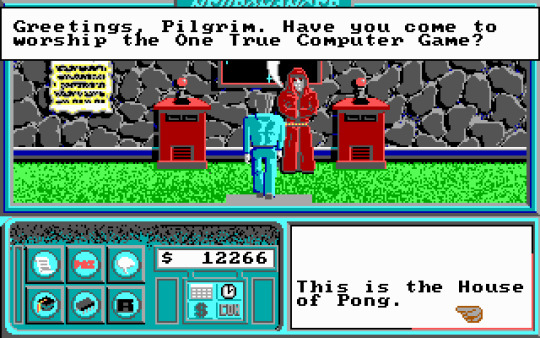
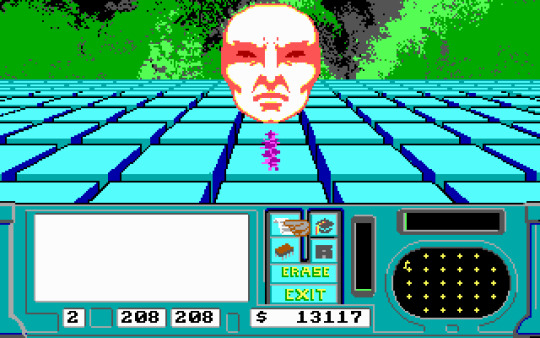
#internet archive#in-browser#c64#commodore 64#dos#dos games#game#games#video game#video games#videogame#videogames#computer game#computer games#licensed games#obscure games#cyberpunk#neuromancer#william gibson#scifi#sci fi#science fiction#game history#gaming history#retro games#retro gaming#1988#1989#1980s#80s
96 notes
·
View notes
Text

56 notes
·
View notes
Text





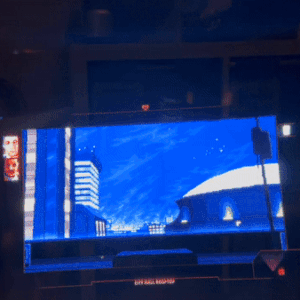

ultimate cyberdeck build | source
#talos gifs#stim gifs#stim#tech stim#technology#techcore#diy#neuromancer#cyberpunk#liquid cooled computers#irl hands#mechanical#tinkercore#blue#black#orange#plastic#glow#clear#liquid#gif ids#id in alt
126 notes
·
View notes
Text

Wintermute / Glitch Black
Glitch Black on Instagram
113 notes
·
View notes
Text
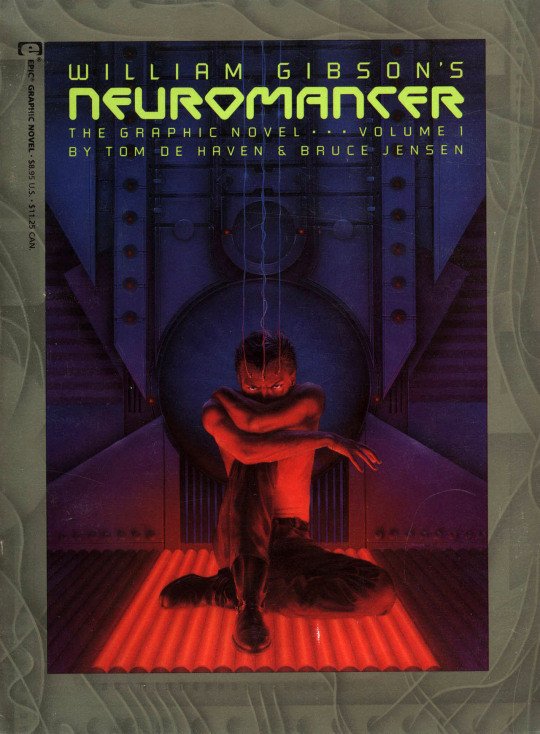
Neuromancer: The Graphic Novel (1989) cover by Bruce Jensen.
Reprinted in Cimoc #105 (December 1989).

63 notes
·
View notes
Text
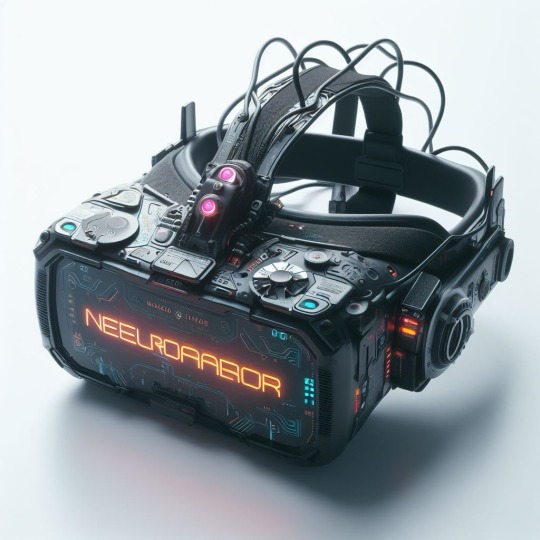
144 notes
·
View notes
